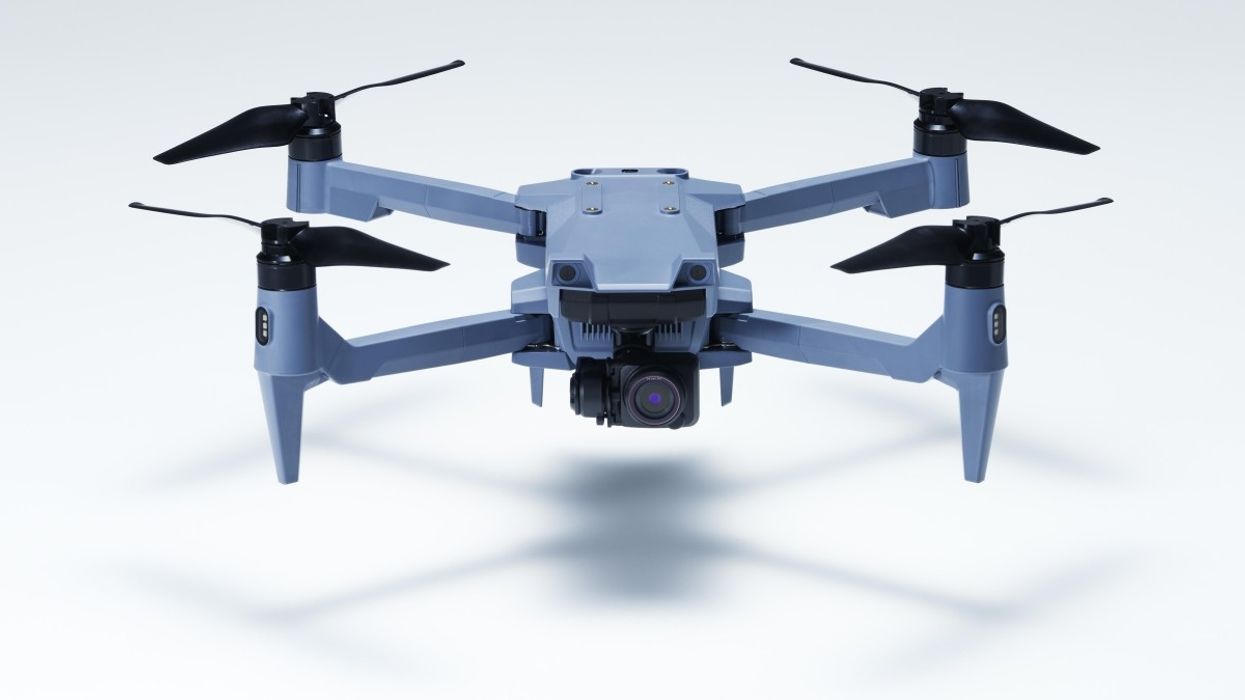Will Japanese ACSL Become DJI's New Drone Competitor?
A look at the leading Japanese drone maker ACSL and their flagship Soten drone, which is set to hit US markets for the first time.

ACSL Soten Drone
Without getting into a whole, you know, debate about capitalism here, it’s often a good thing when there is more competition in an industry. It often leads to more innovation, bigger ideas, and—hopefully for most of us—lowering of prices.
Only time will tell, of course, but the drone videography market has now, and for a long time really, been dominated by one brand: DJI. And for good reason, too, as their drones have hands down been some of the best-made, truest flyers and most high-quality cameras in the air.
However, a new challenger to DJI’s crown has entered the arena as the leading Japanese drone manufacturer, ACSL, has announced that they will be expanding to the U.S. market.
With their flagship Soten drone at the helm, let’s take a look at this new competition and see what it might mean for the aerial video industry.
ACSL Enters U.S. Markets
While obviously not a familiar name to most of us based in the U.S. and the rest of the world, ASCL is a leading brand in Japan that focuses on robotics technologies, with a specific focus on autonomous control technology. And it looks like they’re squarely focused on bringing their robotic technologies to U.S. markets to directly challenge brands like DJI.
“There is a rising drone ecosystem in Japan and we are excited to bridge that growth with the needs in the US market by working in partnership with some of the best USA dealers and experts in the industry. They recognize that our Soten system showcases some of the best that Japan is uniquely positioned to both improve and offer more of, from flight and image quality, manufacturing precision and secure supply chains, to approachable price points.” — Cynthia Huang, CEO of ASCL, Inc.
As part of their expansion to the US, it looks like ACSL is going to partner with some major retailers with deals already inked with the likes of Advexure, Blue Skies Drones, and DronesMadeEasy to help get their products—in particular their Soten system—to the rest of the world.
The ACSL Soten System
Designed to feature a swappable camera module, the ACSL Soten camera drone system will feature a standard 20MP Type 1.0 sensor with a mechanical shutter. Users will be able to swap it out and use different multispectral, zoom, or infrared cameras as well, but the 20MP will be its standard option.
The drone itself has been in development for quite a while now, with ACSL reporting that they’ve been doing deep testing and preparations to bring it up to speed (so to speak) to comply with all of the FAA remote ID requirements and other regulations unique to the US market.
The ACSL Soten does promise to be quite compact, nimble, and lightweight, coming in at 1.7 kg and capable of reaching speeds of 15 meters per second in flight. With its standard-equipped camera, the Soten should also be able to reach 25 minutes of maximum flight time. It also features its own gimbal and strong obstacle detection features, plus IP43 ingress protection.
How Will the Market React?
Ultimately, with a standard camera option that will be able to record 4K video at up to 30 frames per second (or 2.7K resolution at up to 60 fps, and higher frame rates available at below HD resolution) plus 20MP JPEG and DNG image capture, it’s hard to say if the Soten will make an immediate impact off the bat.
It’s also set to start at a retail price of just under $10,000 (that will reportedly include the drone and standard camera plus four batteries, a hard carrying case, spare propellers, and a triple battery charging system), the ACSL Soten will immediately be put up against some of the highest-end options from the likes of DJI and Sony.
We’ll have to wait and see for performance tests and reviews, but from specs alone, it might take a bit for ACSL to find its foothold in the US. Still, hopefully, more competition will be a good thing for a healthier market with lower prices and more innovation.
- Drone Cinematography 101: What You Need to Know From the Pros ›
- Video: Learn How to Pull Off These 5 Classic Drone Shots ›
- The FAA's Proposed Commercial Drone Regulations Are Here, & They're Pretty Chill ›
- My Honeymoon with a Drone: How to Travel the World with Your UAV ›
- DJI FPV Drone Review: Fun, but Not for Filmmakers ›
- Elevate Your Weak Drone Footage with These 10 Moves ›
- DJI Launches ‘Modify' Their First 3D Model Editing Software ›
- DJI to Open its First Concept Store in North America ›
- Could DJI Drones Actually Be Banned in the United States? | No Film School ›
- Uh-Oh: DJI Drone Ban Bill Passes Through House of Representatives ›
- Record 4K 100fps Slow-Mo with the DJI Avata 2 Firmware Update ›
- Not Just Drones: Will the DJI Ban Apply to Cameras Too? | No Film School ›











